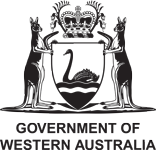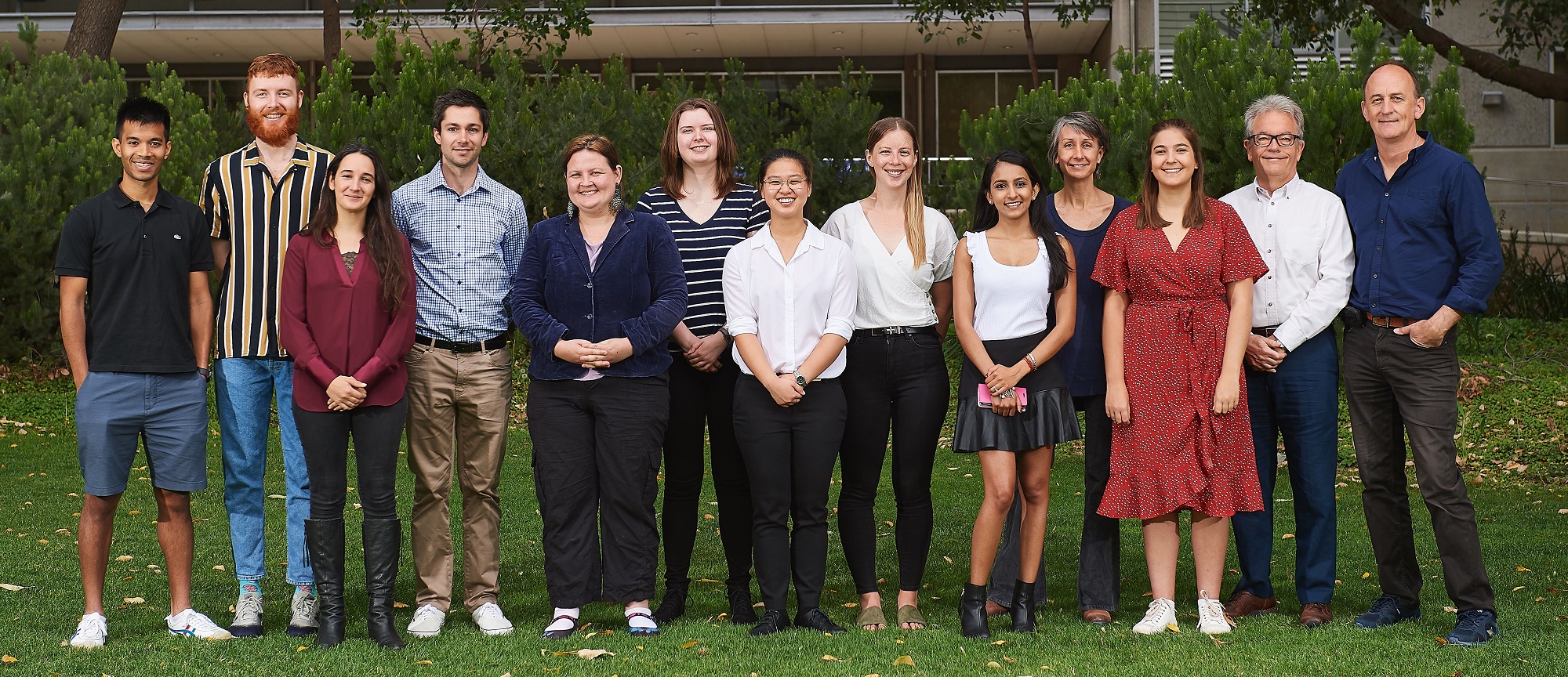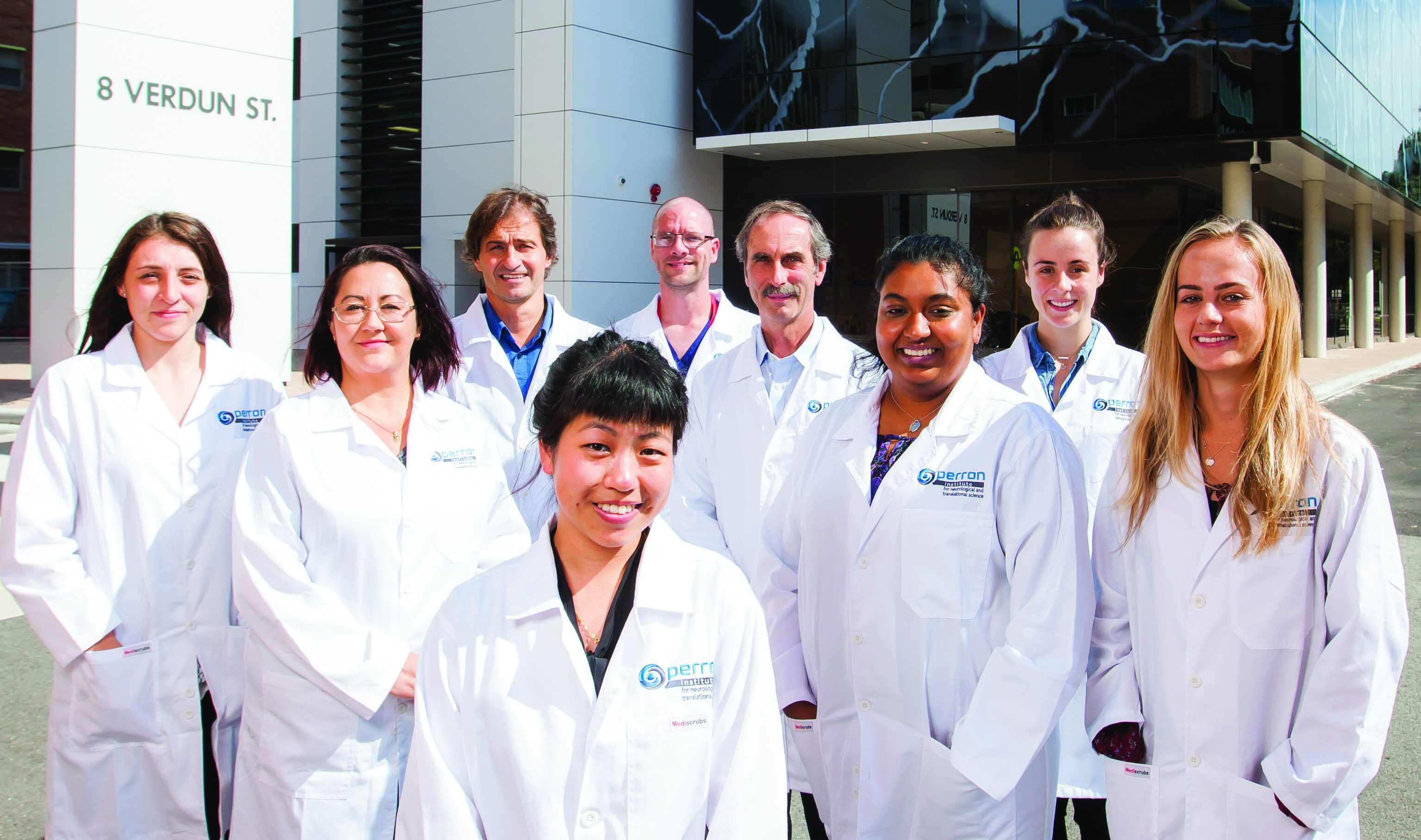Neurotrauma Research Program

The Insurance Commission partners with the Neurotrauma Research Program (NRP) at the Perron Institute for Neurological and Translational Science to find innovative solutions for the recovery, rehabilitation and independence of people with brain and spinal cord injuries acquired from vehicle and workplace accidents.
Funding neurotrauma research provides the Insurance Commission with an opportunity to see improved outcomes for its customers with catastrophic injuries.
Researchers can apply for Insurance Commission funding for grants to support patient focused rehabilitation research projects for catastrophic injuries.
Insurance Commission Sponsored Projects
| Year | Investigators | Project | |
|---|---|---|---|
| 2024 | Chief Investigators
| The ENhAnCe trial: Evaluating Neuropsychological Assessment to enhance Clinical outcomes for This research project aims to evaluate the value and impact of neuropsychological assessment on improving outcomes for individuals with brain conditions, including traumatic brain injury, and their families. | |
| 2024 | Chief Investigators
| Validation of Glial Fibrillary Acidic Protein (GFAP) and Ubiquitin C-Terminal Hydrolase L1 (UCH-L1) Before Glial Fibrillary Acidic Protein (GFAP) and Ubiquitin C-terminal hydrolase L1 (UCH-L1) blood tests can be used to diagnose and predict TBIs in Australia, researchers need to prove they work. This project will check how well these tests can diagnose TBIs and predict patient outcomes. It will also make sure labs can perform these tests correctly. Once the project is successful, Australia can use these blood tests as part of the new global standard for diagnosing TBIs. | |
| 2023 | Chief Investigators
Associate Investigators
| Community system for neuro-rehabilitation – the sustainable model of Train-The-Trainers (T3) SCIPA Com (Spinal Cord Injury & Physical Activity in the Community). This project looks to improve overall functional recovery and quality of life for people that have suffered a neurological injury following a road trauma. The project involves launching an online training initiative in Western Australia initially, with a subsequent nationwide rollout. | |
| 2022 | Chief Investigators
Associate Investigators
| Development and evaluation of a novel, sector-driven, online intervention to improve psychosocial adjustment to traumatic brain injury and enable continuity of care from acute to chronic injury. Post-injury psychosocial and emotional adjustment problems are common and can reduce quality of life, functional recovery, and increase healthcare costs. This project will develop a novel online intervention to improve adjustment to traumatic brain injury (TBI) across acute, post-acute, and chronic phases, providing a cost-effective solution to enable continuing and specialised psychosocial intervention for Australians with TBI as they recover. | |
| 2022 | Chief Investigators
Associate Investigators
| Effect of probiotic intervention on the gut microbiome, peripheral symptoms, and quality of life in individuals with spinal cord injuries. Spinal cord injuries (SCI) cause significant physiological changes secondary to partial paralysis including decreased bowel movements and loss of bladder control. This study aims to implement a probiotic intervention for individuals with SCI to investigate the improvements in functional performance, daily independence and psychological well-being for individuals with SCI. | |
| 2021 | Chief Investigators
Associate Investigators
| A group therapy program for individuals with emotion dysregulation after an acquired brain injury. Focus is on improving emotional dysregulation for people with an acquired brain injury in an aim to improve engagement in rehabilitation, maintain interpersonal relationships and psychological wellbeing, and increase community participation. | |
| 2021 | Chief Investigator
Associate Investigators
| The effectiveness of green-blue light therapy intervention on daytime sleepiness and fatigue to improve work productivity and quality of life outcomes following traumatic brain injury. This project involves using light therapy to reduce fatigue following traumatic brain injury (TBI) in an aim to increase a person’s productivity levels for improved quality of life outcomes. Following TBI, many people experience excessive daytime sleepiness and fatigue which has a significant impact on participation in daily activities and work productivity. Work is regarded as a primary indicator of successful rehabilitation, and an important marker of recovery and improved self-worth for an injured claimant. | |
2019 | 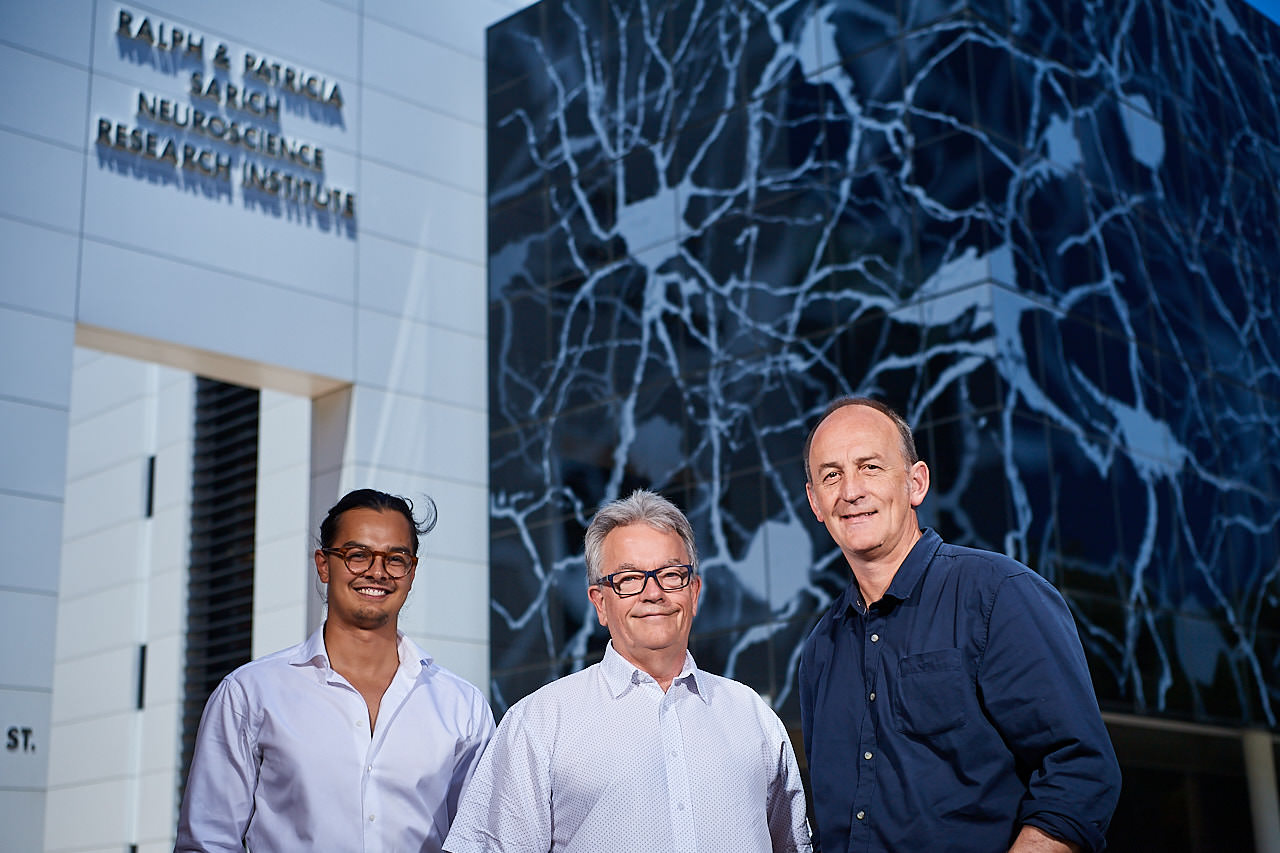
| Chief Investigator
Associate Investigators
Institutions
| Direct in vivo reprogramming of host astrocytes into functional neurons in the injured spinal cord. The team aims to reprogram cells that form scar tissue surrounding the spinal cord injury into neurons (nerve cells) that can then potentially form new circuits to bridge the gap and restore function. |
2018 | 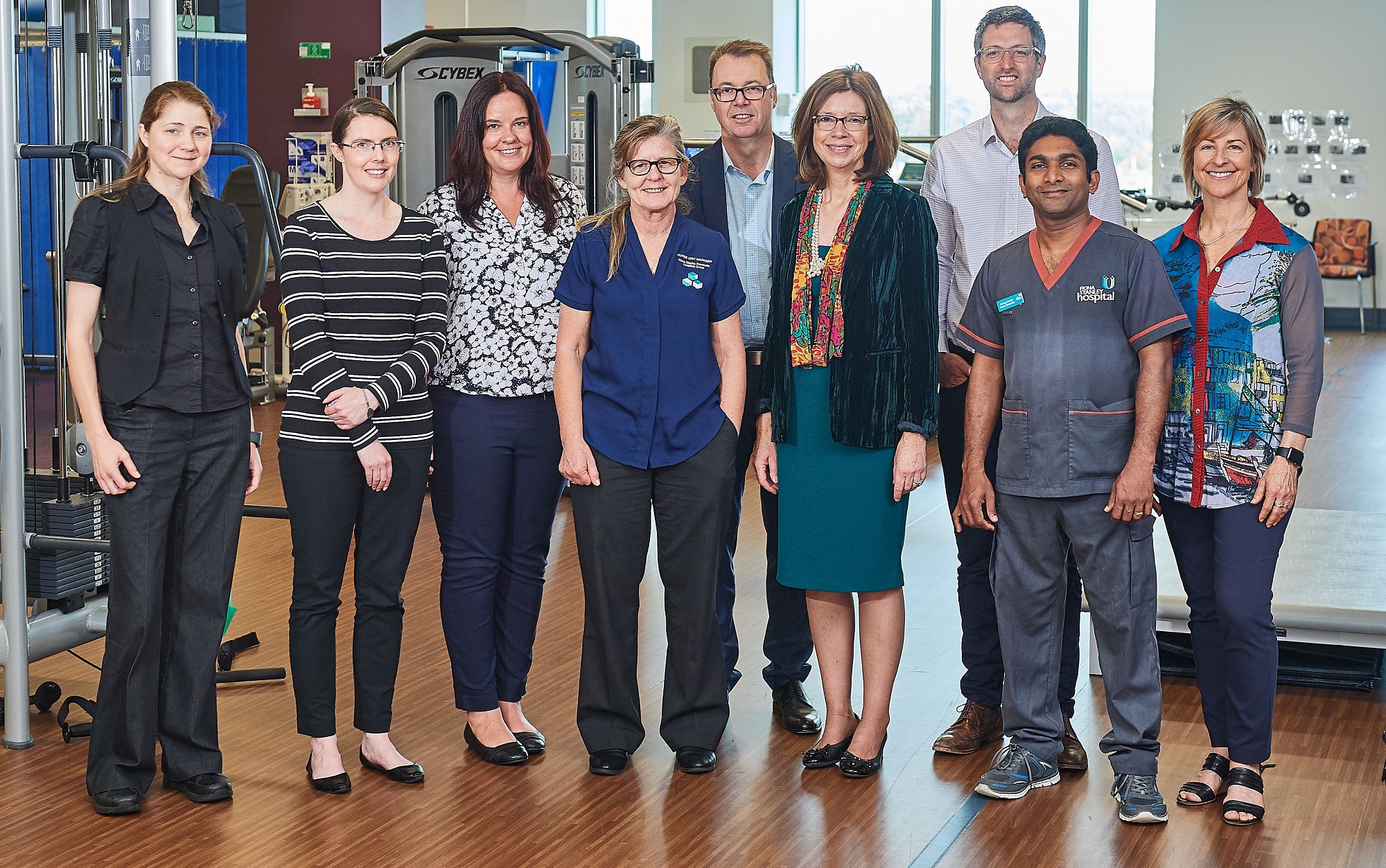
| Chief Investigator
Associate Investigators
Clinical Collaborators
Institutions
| Early treatment following spinal cord injury (SCI) to prevent urinary tract infection (UTI). Following a SCI, UTI is common and debilitating, often leading to long-term urological problems. There are currently no evidence-based interventions to prevent early UTI. UTIs are the single biggest cause of readmission to hospital in Western Australia for people living with chronic SCI. This project assesses the safety and feasibility of a therapy to biologically restore and maintain the integrity of the bladder lining, which breaks down rapidly following SCI. Due to the bladder breaking down, this renders patients with SCI more susceptible to UTI. |
2018 |
| Chief Investigator
Associate Investigators
Lab Members
Institutions
| Assessing the effects of repetitive transcrannial magnetic stimulation (rTMS) training on functional recovery after spinal cord injury (SCI). Previously repetitive rTMS has been used to induce cortical plasticity in the brain resulting in moderate improvements in functional recovery of the affected forelimbs after cervical SCI in a laboratory setting with a test animal. This project will reinforce or strengthen such plasticity related effects by using rTMS (after an SCI), at the same time as other training protocols, to further enhance excitability in the motor/sensorimotor cortex, producing even greater functional forelimb improvements. |
2017 |
| Chief Investigator
Associate Investigators
Institutions
| A music-based gait entrainment instrument for acquired brain injury rehabilitation. This project focuses on stimulating locomotory movement in people with acquired brain injuries by using a mobile application that plays music and triggers pressure sensors on the foot. This project tests the efficacy of the application to improve gait during rehabilitation exercises and to deliver improvements to patients’ neurological and functional outcomes. |
2017 |
| Chief Investigator
Associate Investigators
Institutions
| Pre-clinical assessment of a peptide to reduce central nervous system injury following neurotrauma. Certain peptides can protect the brain’s neural pathways following an injury. The project assesses the neuro-protective potential of a peptide to reduce brain damage in neurotrauma-related injuries. |
Read more about the NRP.
